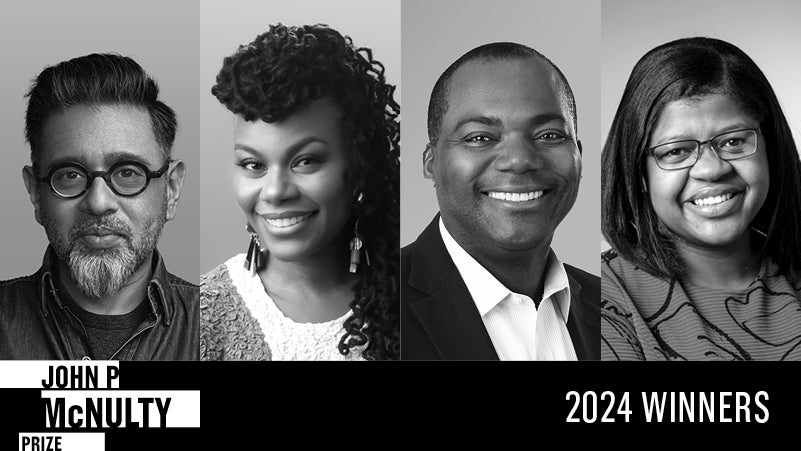An intellectually healthy society needs outlets for deep, meaningful conversations. However, those outlets can be difficult to find in modern American society.
Samuel Kimbriel, founding executive director of The Aspen Institute’s Philosophy and Society Program, and Osita Nwanevu, contributing editor at The New Republic, recently sat down together as part of the Aspen Ignites series to discuss how conversation can be made richer in all levels of American society.
Their conversations explored an approach to discourse that prioritizes sharing context and deprioritizes finding consensus.
Public discourse is too tame
Kimbriel began the conversation with the observation that in recent years, the public discourse found in large scale media outlets is “too tame.”
“It’s tame, I think, in a couple of ways,” Kimbriel said. “One, it feels like it’s very self-focused. There’s a lot of emphasis on self-posturing and where you sit within a particular ideological map. Then, it’s secondly tame in the sense of the size of the questions people are asking. People will argue with great verve about the latest small policy question, and almost never about what it’s about, what it’s for.”
For a more meaningful exchange, Kimbriel and Nwanevu both believe we need to delve deeper into the hard questions around an issue – even if it means discussing it in a less “tame” way.
Audiences want deep conversations
Much of today’s media centers around quick explainers and simple soundbites, but Nwanevu and Kimbriel believe that our society wants more in-depth journalism.
“There is actually a public appetite for deeper conversations,” Nwanevu said. “There’s a deep and abiding curiosity in people in general … There’s always this hunger to understand experience that I don’t think we really cater to in the current media environment.”
Nwanevu and Kimbriel argued that our media environment should satisfy that curiosity with in-depth journalism that considers the context behind issues. It may find a larger audience than many expect.
Polarizing topics shouldn’t be avoided
As politics has become more polarizing, many media outlets have tried to ease tensions among audiences by staying away from difficult topics. This, according to Kimbriel and Nwanevu, is a mistake.
“To swear off parts of our discourse because they are outside the mainstream, or the ideas are expressed with a lot of passion … I think is not a really mature way to deal with the reality of diversity and difference in the United States,” Nwanevu said. “You can’t shove these things aside.”
Instead, “The way you have a healthy society is to ask the largest and most contentious questions, and to do it well,” Kimbriel said.
“In all kinds of contexts – with your family, friends – figuring out, what does it mean to speak directly even with people you know there’s going to be a big disagreement?”
Consensus shouldn’t be the goal of discourse
Often, discourse is constructed around a desire for helping all participants reach consensus. But, Nwanevu said, “As a society as diverse as the United States is – where we tell ourselves that the important thing about this country is that you can believe what you want to believe, say what you want to say – the hope for consensus amidst all that is actually kind of thin.”
Letting go of consensus as a goal can actually elevate discourse because it allows people to focus on sharing ideas, rather than on trying to change firm opinions.
“There are always going to be these irresolvable differences between different groups of people … We need to find ways of expressing them, articulating them, debating them without telling ourselves that the point is consensus,” Nwanevu said.
The Aspen Institute’s Philosophy and Society Program aims to elevate public discourse
To create more settings where people feel invited to tackle difficult, intellectually challenging topics, Kimbriel is launching The Aspen Institute’s Philosophy and Society Program. The goal of the program is to “figure out how you could open up a much more ambitious intellectual register in American public conversation.”
To accomplish this, the program will create programs that facilitate both small group conversation and public outlets for discussing or writing about meaningful questions.
“It’s been a really exciting and rewarding thing so far,” Kimbriel said of launching the program. “The possibility of legitimating the sense that people have big and real questions that they want to answer in public feels really thrilling.”
Watch the whole conversation below.

